AUGUSTA — Seven year-old Joseph Adams and his younger sisters, Madeline and Gabrielle, twitched nervously as the bus carrying firefighters pulled into view Friday morning. The signs the children held, saying, “Welcome home Daddy” and just “Daddy,” were for J.P. Adams, who, along with 19 others, was coming home after nearly three weeks of fighting wildfires out West.
As he got off the bus, the children ran to their father, screeching, “Daddy,” and when they reached him, they clung to his legs as he knelt to give each a hug. This was the moment they had all been waiting for, said Adams’ wife, Nicole Adams, as she held their youngest child, 1-year-old Thomas.
“It’s very exciting,” she said. “The kids are definitely ready.”
The 20-person crew, made up of men and women from across Maine, is one of thousands from around the country, and even the world, to descend on the West in recent weeks to battle hundreds of fires from Alaska to California. The fires have burned more than 11,000 square miles so far, much of it in Alaska.
Most of the firefighters on Maine Crew 1 serve full time or as volunteers on fire departments in Maine. However, the crew also included students and others who are trained to fight wildfires but work in other industries. The crew, headed by Forest Ranger Matt Bennett, was assigned to the River Complex in Willow Creek, California. The firefighters arrived Aug. 4, as multiple fires were burning more than 3,000 acres. But by the time they left, several fires had connected and grown to more than 40,000 acres, Forest Ranger Jasmine Hammond, who served as a squad boss on the trip, wrote on the Maine Forest Ranger Facebook page.
J.P. Adams, a Lewiston firefighter, said the Western fires are unlike anything seen here, but the Maine crew was able to bring the fire in its assigned division under control.
“When we left, it was 100 percent contained,” Adams said proudly. “We were pretty happy when we left.”
The crew, working up to 16 hours every day for two weeks, dug hand lines and cut small trees and brush that threatened firefighter safety. The crew burned a control line, did mop-up work, used firetrucks and bulldozers and protected homes from the approaching wildfires, Hammond wrote. The men and women hiked an average of 9 miles per day at elevations more than 3,000 feet in temperatures that crested 90 degrees.
“We were fortunate to have no injuries, and morale was excellent,” Hammond wrote. “We are proud to represent the state of Maine and look forward to our next assignment.”
For many, that assignment will come in just a few days as officials continue to scramble for help to keep the fires in check. Nearly 30,000 firefighters have answered the call, said Peter Beringer of the Maine Forest Service, but more help is still needed. Firefighters returning Friday said they planned to sign up for crews being assembled to ship out within the next couple of weeks.
For now, though, families who gathered to meet the Cyr bus, which was fittingly emblazoned with racing flames spanning its length, were anxious to welcome their firefighters home. Brett Vallee, 21, of New Gloucester was greeted by his mother, Sheri Vallee, and his grandparents Joe and Doris Short of Minot.
“I’m happy he had a chance to go,” Sheri Vallee said. “I’m just thrilled he’s safe.”
Other families have not been so fortunate. The Maine crew arrived home just a day after it was announced that three firefighters were killed while battling a blaze in Washington state. The danger and work were unrelenting. Nicole Adams said she was able to speak to her husband almost every day, but phone calls could do only so much to counter her imagination.
“It’s very hard,” she said. “It’s the unknown.”
Brett Vallee, a second-year student enrolled in Southern Maine Community College’s Fire Science program, said the California trip was his first wildfire-fighting experience, but predicted it will not be his last.
“Two weeks felt like two days,” he said.
The physical challenges, Vallee heard, can sour crew members by the end of the campaign, but Vallee said that instead of grumbling, his crew mates found strength in one another.
“We were at 3,000, 4,000 feet, walking uphill both ways, trying to dig hand lines. You really rely on your crew,” Vallee said. “We really came together.”
J.P. Adams, who last year fought a fire in Oregon, said this year’s crew was the best he’s worked with.
“You get to know each other very well,” he said.
Beringer spent two weeks fighting wildfires in Alaska at the end of July. He returned to Maine on Aug. 3 and stepped off the bus just in time to see his son, 23-year-old Jonathan Beringer, head to California. Jonathan Beringer, who lives in Waterville and serves with the Winslow Fire Department, previously had served on crews in Quebec and Oregon. The heat, which was more intense, and the altitude, made California a different kind of challenge, Beringer said.
“What we call mountains they call hills,” he said. “When the smoke left, it got really hot really fast.”
Beringer, whose sister also hopes to join a crew this year, said he plans to go back out on a new team.
“The need is there,” he said. “It’s hard work, but it’s good work. It’s an adventure every day.”
The firefighters exchanged handshakes and hugs before going their separate ways for their own individual homecomings. Nicole Adams planned to celebrate her husband’s return by making him a home-cooked meal.
J.P. Adams said as difficult as the work is for the firefighters, the challenges are often even greater for those at home.
“My wife’s a saint,” he said.
Augusta firefighter Rich Beaudoin, who also was returning to his wife and children, said leaving them behind is difficult but worthwhile. He said the trips offer a chance not only to help, but also to catch up with friends who serve on the crew.
“It’s kind of an annual reunion,” Beaudoin said. “You get pretty intimate.”
Send questions/comments to the editors.

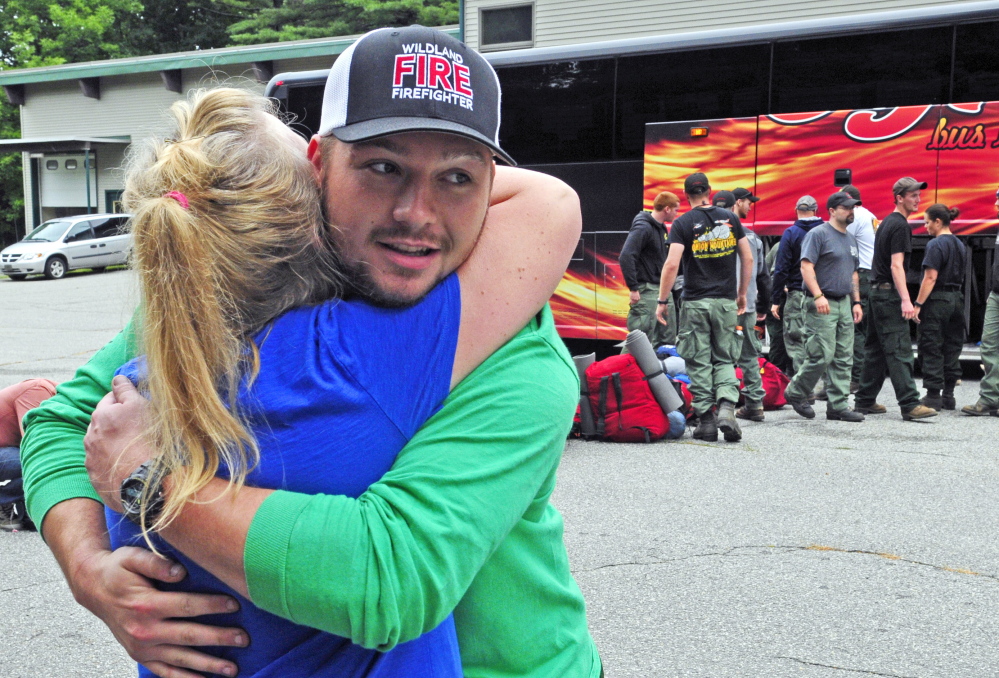
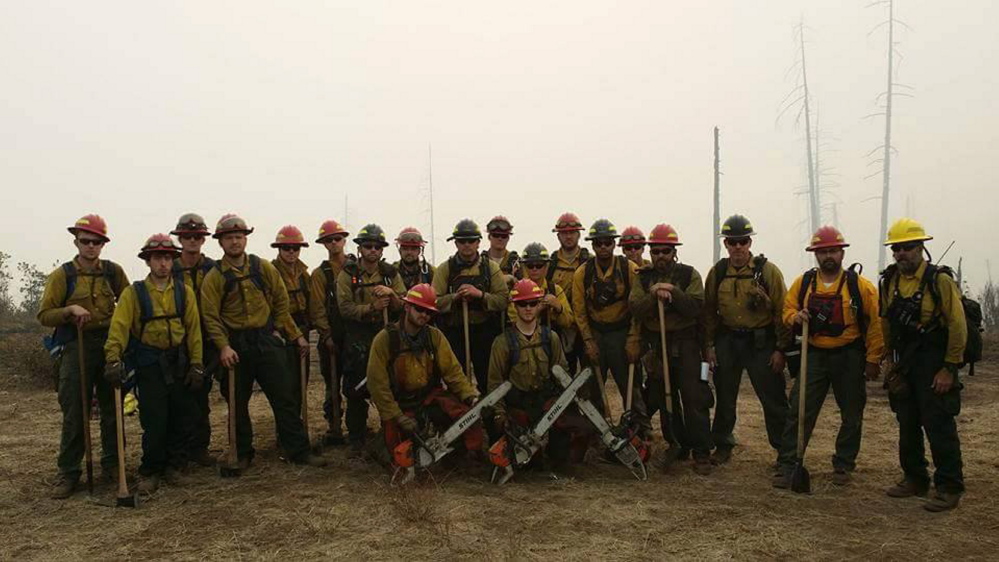
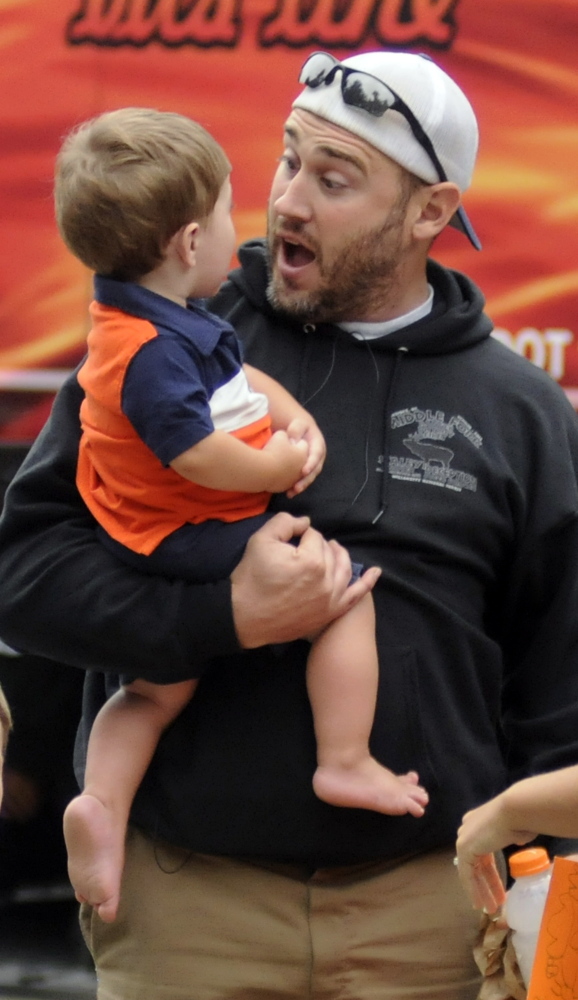
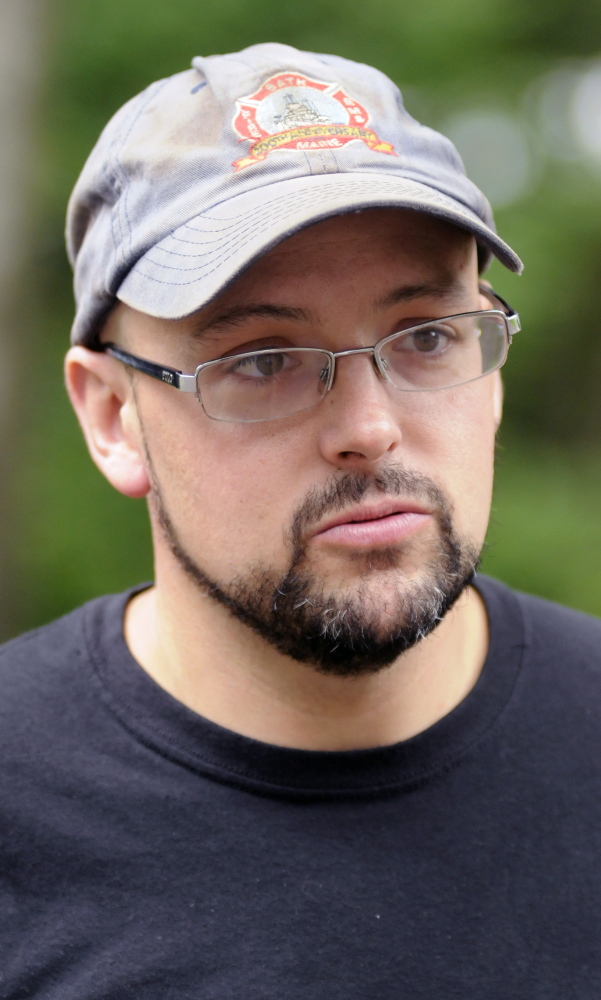
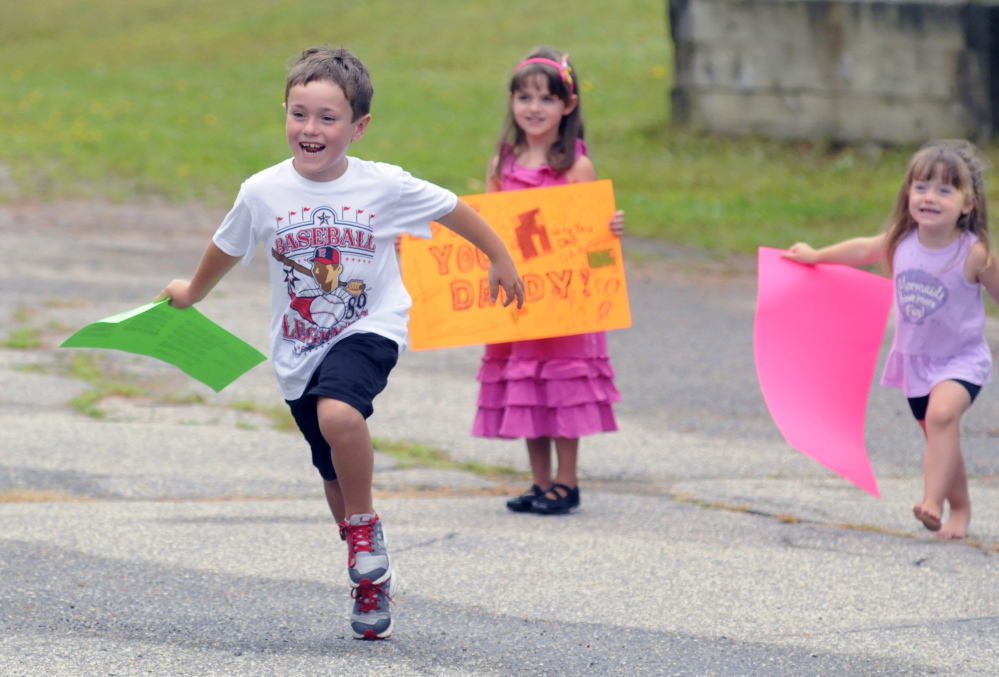
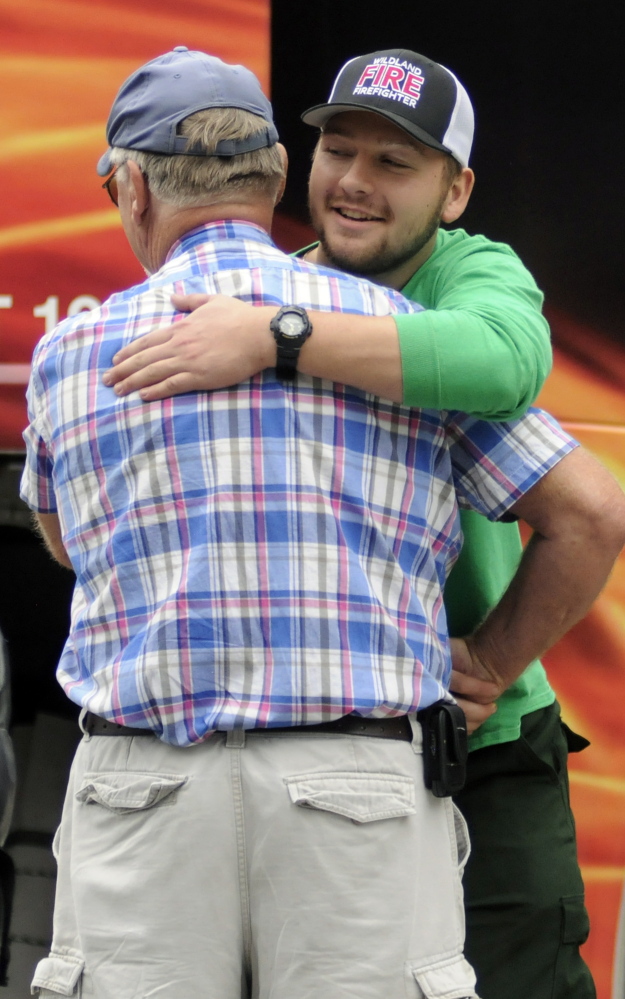
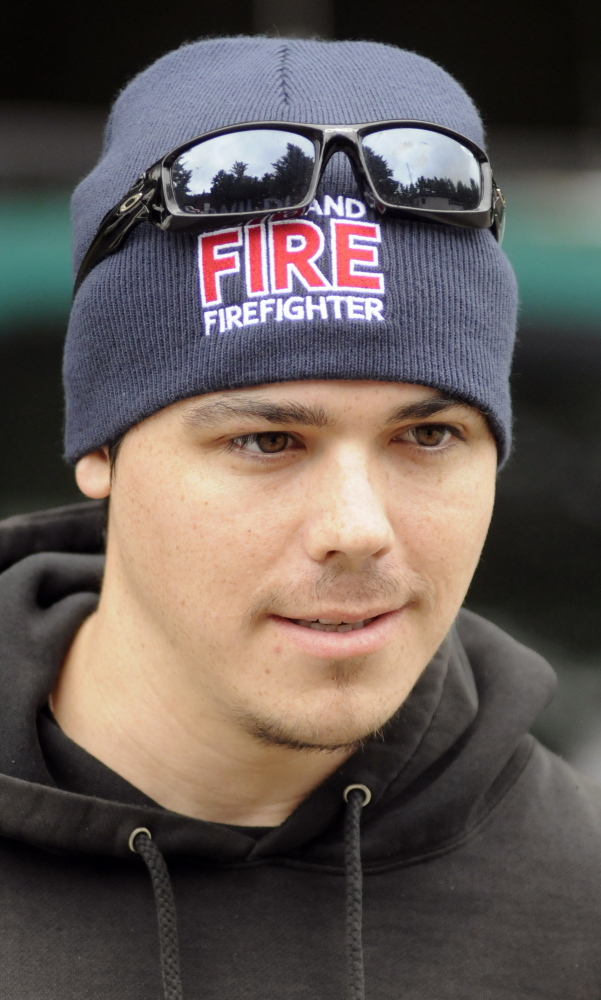


Comments are no longer available on this story